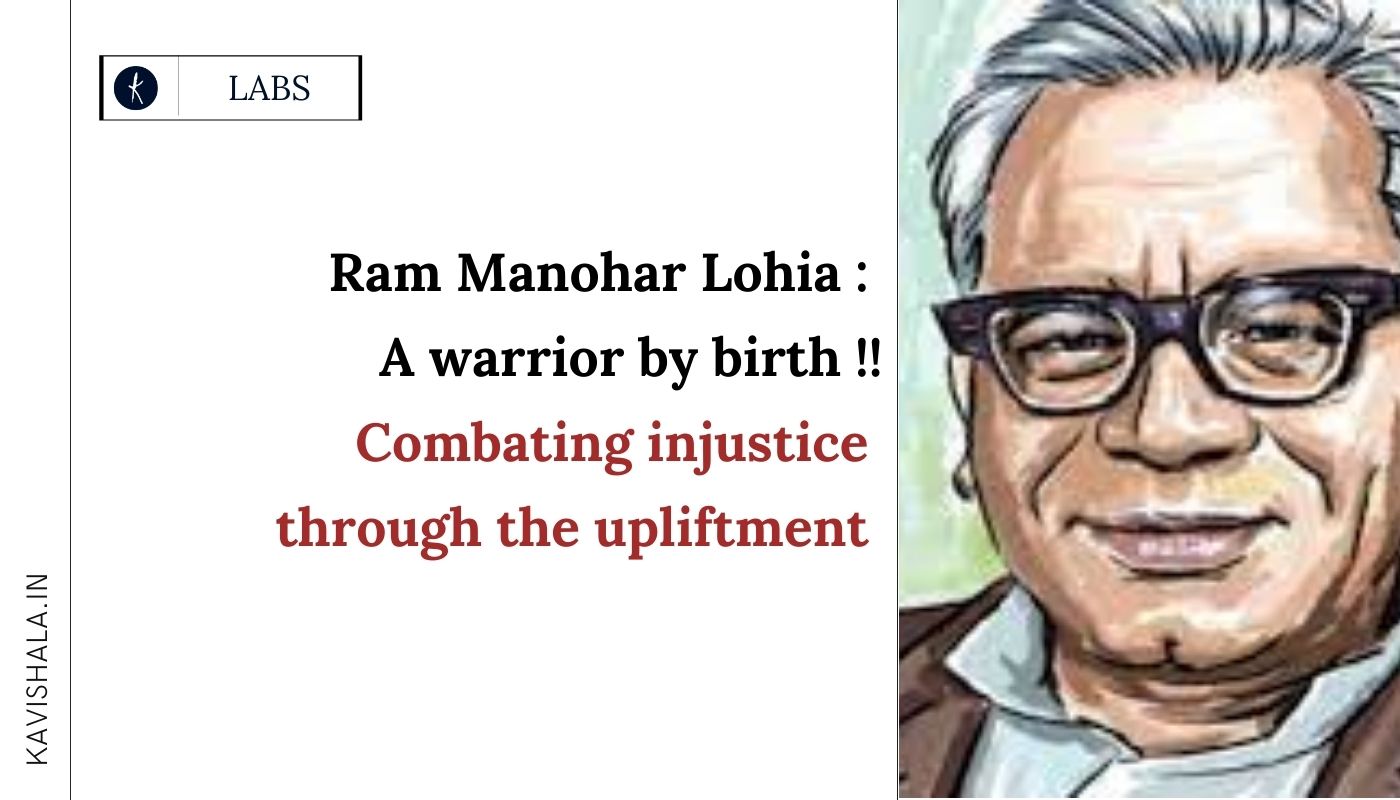
“Today's public figures can no longer write their own speeches or books,
and there is some evidence that they can't read them either. ”
― Gore Vidal
Ram Manohar Lohia, was born in the month of march on 23rd in the year, 1910, in Akbarpur, India. He had devoted his career to combating injustice through the upliftment of a distinctly Indian version of socialism.
Ram Manohar was born to a rich family of merchants. Followed by the death of his mother when he was 2 years old, he was raised and nourished by his grandparents, although his father’s commitment to Indian nationalism influenced him during his childhood to take this step.
He was destined to attend Banaras Hindu University before earning a bachelor’s degree (1929) from the University of Calcutta and a doctorate in the year 1932 from the University of Berlin, where he studied economics and politics.
Whereas in the year 1934 Lohia was involved in the Congress Socialist Party (CSP) and made that year as a left-wing group within the Indian National Congress; as he served on the CSP executive committee and also edited its weekly journal.
Being Objectified
Although a vehement opponent of Indian participants on the Great Britain side in World War II, he was arrested for anti-British remarks in the year 1939 and again in 1940; the latter incident also resulted in harsh 18-month imprisonment.
With the emergence in 1942 of the Quit India movement and a campaign initiated by Mohandas K. Gandhi to urge the withdrawal of British authorities from India—Lohia and other CSP leaders mobilized support from the underground.
For such resistance activities, he was again jailed in 1944–46.
Major writings in English
- The Caste System: Hyderabad, Navahind [1964].
- Foreign Policy: Aligarh, P.C. Dwadash Shreni, [1963].
- Fragments of World Mind: Maitrayani Publishers & Booksellers; Allahabad [1949].
- Fundamentals of a World Mind: ed. by K.S. Karanth. Bombay, Sindhu Publications, [1987].
- Guilty Men of India’s Partition: Lohia Samata Vidyalaya Nyas, Publication Dept.,[1970].
- India, China, and Northern Frontiers: Hyderabad, Navahind [1963].
- Interval During Politics: Hyderabad, Navahind [1965].
Let's remember a poem by Ambrose Bierce on this day -
A Political Apostate
Good friend, it is with deep regret I note
The latest, strangest turning of your coat;
Though any way you wear that mental clout
The seamy side seems always to be out.
Who could have thought that you would e'er sustain
The Southern shotgun's arbitrary reign!
Your sturdy hand assisting to replace
The broken yoke on a delivered race;
The ballot's purity no more your care,
With equal privilege to dark and fair.
To Yesterday a traitor, to To-day
You're constant but the better to betray
To-morrow. Your convictions all are naught
But the wild asses of the world of thought,
Which, flying mindless o'er the barren plain,
Perceive at last they've nothing so to gain,
And, turning penitent upon their track,
No posts
No posts
No posts
No posts

Comments